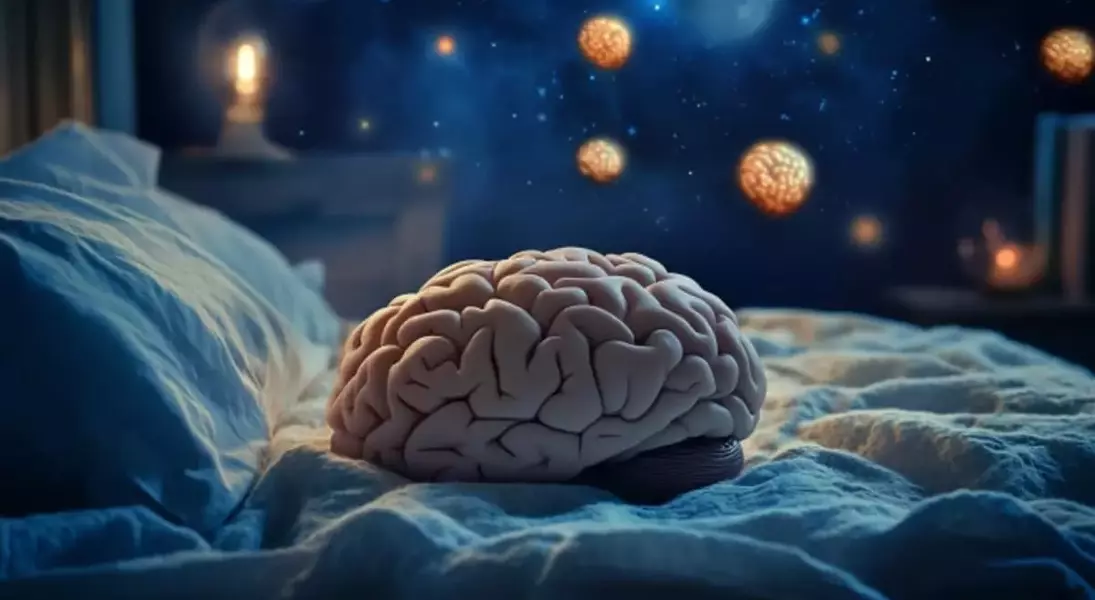
Revolutionizing Sleep Science: Unlocking the Secrets to Better Mental Health
The implications of these discoveries could redefine how we approach mental health issues tied to poor sleep quality, empowering individuals with actionable strategies to safeguard their well-being.
Neural Pathways Under Siege: Exploring Chronic Sleep Disorders
Chronic sleep disorders such as insomnia, obstructive sleep apnea, and narcolepsy have long been recognized as significant contributors to mental health challenges. However, understanding their precise neural impact has remained elusive until now. Researchers identified key regions like the anterior cingulate cortex, amygdala, and hippocampus as critical players in this phenomenon.
These areas are deeply intertwined with emotional regulation, memory formation, decision-making, and sensory processing. For instance, alterations in the anterior cingulate cortex may explain why individuals suffering from chronic sleep loss often experience mood swings and diminished cognitive performance. Moreover, changes in the amygdala highlight its role in heightened stress responses, while hippocampal modifications underscore difficulties in retaining information over time.
Acute Effects of Temporary Sleep Loss
In contrast, short-term sleep deprivation primarily targets different parts of the brain, notably the thalamus. This region governs essential functions such as temperature control, movement coordination, and pain perception. Its involvement aligns perfectly with the common symptoms reported by those enduring brief periods of inadequate rest—impaired attention spans, sluggish physical reactions, and increased sensitivity to cold temperatures.
A deeper dive into the mechanics reveals that the thalamus acts as a relay station for sensory inputs traveling between peripheral nerves and higher cortical centers. When deprived of sufficient rest, this vital hub falters, leading to cascading effects throughout the nervous system. Consequently, tasks requiring sustained focus become arduous, and even simple motor activities feel laborious.
Mapping the Brain's Response to Sleep Disruptions
To arrive at these groundbreaking conclusions, scientists meticulously analyzed data culled from 231 independent studies. By comparing groups afflicted by chronic conditions against healthy counterparts, alongside contrasting rested subjects versus those subjected to acute sleep loss, patterns emerged that had previously gone unnoticed. These insights not only validate existing theories but also introduce novel perspectives regarding sleep's influence on neurological architecture.
For example, the absence of overlapping regions between chronic and acute cases suggests unique mechanisms underlying each condition. Such specificity opens doors for developing tailored interventions aimed at mitigating specific symptoms rather than adopting one-size-fits-all approaches. Furthermore, identifying functional connectivity profiles associated with altered structures provides additional layers of complexity worthy of exploration.
Potential Applications in Clinical Settings
Armed with this newfound knowledge, medical professionals stand poised to revolutionize treatment paradigms for patients grappling with sleep-related ailments. Cognitive behavioral therapy (CBT), continuous positive airway pressure (CPAP) machines, and pharmacological agents can all benefit from refinements informed by these discoveries. Specifically, targeting affected areas within the brain may enhance efficacy rates while minimizing unwanted side effects.
Beyond immediate applications, the potential exists for advancing transdiagnostic research frameworks capable of addressing multiple sleep disorders simultaneously. By examining shared characteristics across various conditions, researchers might uncover universal principles governing sleep physiology, thereby accelerating progress toward comprehensive solutions. Additionally, recognizing risk factors linked to psychiatric comorbidities empowers clinicians to implement proactive measures reducing incidence rates among vulnerable populations.
Looking Ahead: A New Era in Sleep Medicine
As society continues grappling with rising prevalence rates of sleep disturbances, harnessing advancements derived from cutting-edge neuroscience becomes increasingly vital. The ability to distinguish between chronic and transient impacts empowers both practitioners and laypersons alike to make informed decisions concerning prevention and intervention strategies. Ultimately, fostering healthier sleep habits promises substantial dividends extending far beyond individual wellness into broader societal benefits encompassing productivity gains and healthcare cost reductions.
Future investigations must build upon current successes, delving further into unexplored territories ripe with possibilities. Collaborative efforts combining diverse expertise will undoubtedly yield transformative breakthroughs reshaping our understanding of human biology and its intricate relationship with restorative processes fundamental to life itself.
